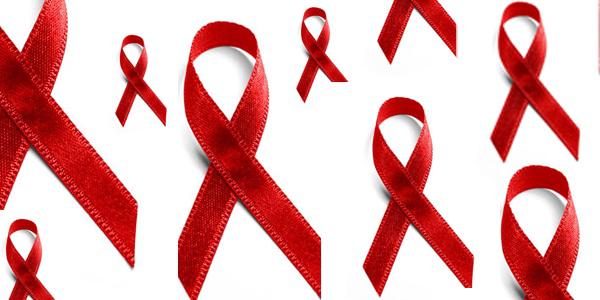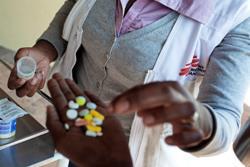“How am I going to tell my parents?”

“The first time I heard about HIV I didn’t know much about it but I wanted to know my status. I visited the clinic where I received pre-counselling and was tested.
“I learnt that I was HIV-positive. I was so disappointed I thought of killing myself because I was confused and afraid
“I started asking myself questions I couldn’t answer. I wondered where I got the virus from and who had infected me. My biggest worry was how I was going to tell my parents.
“I kept my HIV status a secret for four years, but in those four years I became sick. In 2001, I contracted tuberculosis (TB). I took the treatment as I was told, so the TB was cured. In 2002, I developed breast cancer, but because it was at an early stage it was treated.
“Then in 2004, I was diagnosed with TB again. I had no choice but to disclose my HIV status to my family.
“I had kept quiet all those years was because I thought they would abandon and disown me, but I was wrong.
“Hearing my mom say, ‘my child, we will always love you, care and support you, no matter what,’ gave me the courage to talk about HIV, teach others, and fight the stigma and discrimination in my community. I joined the Treatment Action Campaign’s local branch.
“In April 2005, I started my antiretroviral (ARV) treatment.
“The first time I started my ARVs, I made a mistake and took a pill in the morning that I was supposed to take at night. I was about to do my laundry. I was so dizzy I fell into the water head-first. I almost drowned. If it hadn’t for my neighbours, I would have died that day.
“For an HIV-positive person to live long, she has to live a positive lifestyle and make sure to adhere to treatment.
“My advice? Join a support group. Keep yourself busy so that you won’t get stressed.
“Stigma and discrimination are still serious issues, but don’t let them hold you back from enjoying your life because you only live once. I encourage every HIV-positive person to start treatment as early as possible.
“I can’t wait to start taking the fixed dose combination (FDC) ARV. I want to be the first one at my clinic to beswitch to the FDC. One pill a day will really increase our adherence to treatment, and our lives will be so much easier.”
As of October 1, South Africa’s FDC ARV is no longer just for pregnant women or those just starting HIV treatment, but can be made available to even long-time ARV patients.
Author
Republish this article
This work is licensed under a Creative Commons Attribution-NoDerivatives 4.0 International License.
Unless otherwise noted, you can republish our articles for free under a Creative Commons license. Here’s what you need to know:
You have to credit Health-e News. In the byline, we prefer “Author Name, Publication.” At the top of the text of your story, include a line that reads: “This story was originally published by Health-e News.” You must link the word “Health-e News” to the original URL of the story.
You must include all of the links from our story, including our newsletter sign up link.
If you use canonical metadata, please use the Health-e News URL. For more information about canonical metadata, click here.
You can’t edit our material, except to reflect relative changes in time, location and editorial style. (For example, “yesterday” can be changed to “last week”)
You have no rights to sell, license, syndicate, or otherwise represent yourself as the authorized owner of our material to any third parties. This means that you cannot actively publish or submit our work for syndication to third party platforms or apps like Apple News or Google News. Health-e News understands that publishers cannot fully control when certain third parties automatically summarise or crawl content from publishers’ own sites.
You can’t republish our material wholesale, or automatically; you need to select stories to be republished individually.
If you share republished stories on social media, we’d appreciate being tagged in your posts. You can find us on Twitter @HealthENews, Instagram @healthenews, and Facebook Health-e News Service.
You can grab HTML code for our stories easily. Click on the Creative Commons logo on our stories. You’ll find it with the other share buttons.
If you have any other questions, contact info@health-e.org.za.
“How am I going to tell my parents?”
by cynthiamaseko, Health-e News
December 2, 2013



